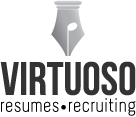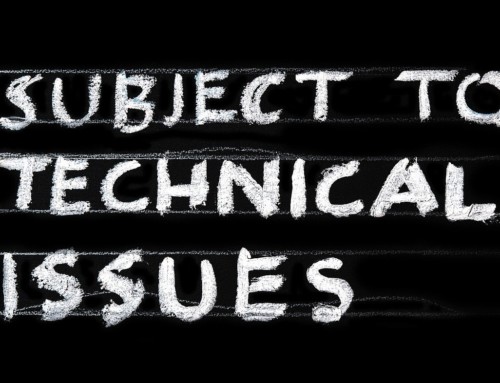Want to hear a crazy story? My kid, just 17 years old, nailed his recorded video interview and landed his first job. They hired him without even having a live conversation! In this competitive job market, where you can expect to be vying for positions against hundreds, if not thousands, of other job seekers, there are plenty of things that can be frustrating. But many of those perceived obstacles are easily overcome with a little preparation (and perhaps some coaching from a resume writer and interview coach!). But what about video interviews?
No, I’m not talking about Zoom, Google Chat, or Microsoft Teams. Those are video interviews, yes, but they’re live. Instead, in this context, I’m referring to recorded video interviews (alternately called one-way video interviewing). They’re an entirely different entity and one you’re more and more likely to encounter at some point in your 21st-century job search.
Exploring Video Interview Software
Some of the industries that leverage video interviews include finance, healthcare, education, and consulting, although the trend is catching on across a variety of sectors. Companies that prioritize efficiency and have large pools of candidates to evaluate appreciate the efficiency of asynchronous interviewing. These recorded segments allow employers to screen applicants, provide a consistent interview process, and give them some insight into their candidate pool without taking time out of their busy schedules to meet with them.
There is an entire category of companies that cater to this need to screen candidates; these solutions are tagged video interview software. While you may or may not have heard of them, here’s a quick list of some of the top companies in the space (if you care to do some research). Scroll to the next section if you don’t care!
HireVue
Perhaps the most well-known, HireVue was at the leading edge of this technology when it launched in 2004. According to the company’s website, it was sending physical cameras for interviews in 2010, but today, the asynchronous interviewing approach is available to most employers and applicants with their in-office and at-home technology.
VidCruiter
As the name implies, VidCruiter is focused on supporting recruiters. It joined the landscape in 2009 when one of its founders found himself tasked with needing to review more than 200 applications in a short window of time. Their website says they currently support more than 125,000 recruiters across mid-sized and large organizations.
SparkHire
In 2012, SparkHire launched its platform with the goal of making hiring easier for companies. The company now boasts more than 6,000 clients among those who are leveraging the technology.
Naturally, these and other companies have now begun to incorporate AI into the process of screening applicants. With an abundance of virtual roles available in the marketplace, it stands to reason that one-way video interviews are here to stay.
What You Can Expect in Recorded Video Interviews
Now that you know the names behind the technology, it’s time to learn a bit more about what to expect when you’re invited to participate in a video interview. Typically, you’ll be faced with:
· A structured format. Questions will appear in one of two ways: on the screen in text or from a prerecorded interviewer. They will be presented one at a time, and then you will be allowed to record your response.
· Time limits. Unlike an in-person or Zoom interview, your responses here will be timed. You typically receive a set amount of time to prepare your answer (30 seconds to one minute) and a fixed time to answer (one to three minutes).
While some platforms will allow applicants a second chance to record your question, don’t count on it. Many are a one-and-done situation.
Common Questions Used in These Platforms
Remember that asynchronous video interviews are screening interviews, so they are short and to the point. Just like that twenty-minute call with a recruiter to see if you’re a fit, these recordings will broach similar questions with a similar goal.
Some of the questions you should prepare to answer in recorded interviews include:
· “Tell me about yourself.” This standard starter question gives applicants the opportunity to sum up their career journey. Stick to the value you can provide in this role and the experience, talents, and accomplishments you’ll offer.
· “What draws you to this opportunity?” No matter how it’s phrased, this question is really asking why you want to work there and/or why they should move you forward in the process. It’s best to lean on the chance to grow and expand while adding value to the company. Be sure to integrate something about its value, mission, or culture.
· “Describe a challenging situation and how you handled it.” While vague, this question gives employers insight into your problem-solving abilities. Access an accomplishment of which you’re particularly proud and start with the challenge you faced, followed by the action you took to overcome it, and the result you enjoyed because of your actions.
Preparing for Your Video Interview
No matter the type of interview you have scheduled, preparation is similar. You always want to:
· Research the company and position, using the company’s website and LinkedIn as well as Google and Glassdoor.
· Ensure the room where you’ll record your interview is quiet, well lit, and free from distractions. (My kid did clean his room before recording his interview.)
· Test your equipment ahead of time to avoid any issues.
· Practice common questions you will likely be asked. In addition to those above, input the job description into ChatGPT and ask for some example questions you might be asked.
· Dress professionally, as you would for any video or in-person interview.
· Monitor your body language. If you’re not used to watching yourself on screen, practice. The only thing you’ll be looking at during the interview is you—so get comfortable.
During the Interview
Once you are settled in and ready to click “start,” keep these tips in mind:
· Read the questions carefully and take a moment to understand what you’re being asked. Run through your answer during the preparation time and be sure of what you’ll say.
· Stay focused. I get it: It’s hard to talk to no one but yourself but remember that someone will be watching this video shortly. Take a deep breath, speak clearly, and pace yourself.
· Keep an eye on the timer in the corner of the screen and be sure to wrap up your answer before you run out of time.
Mastering Video Interviews
Whether you like it or not, asynchronous, recorded videos are here to stay—with more companies adopting this option all the time. By understanding what to expect and preparing thoroughly, you can confidently navigate this method of interviewing. Keep these tips and strategies handy, so you’ll be better equipped to make a great impression on potential employers.
For more tips and expert guidance on acing your next video interview, check out Virtuoso Resumes today!












